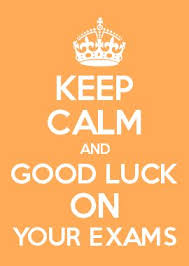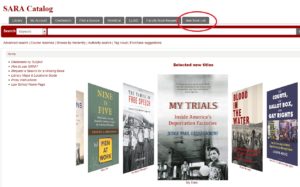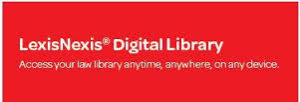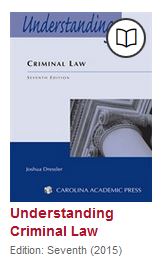Election Day 2016 is not the first where a candidate for president won the most electoral votes, thus winning the presidency, but failed to win the popular vote. The unique American system provides no direct election of President and Vice-President. Since 1789, Electors chose successful candidates for those seats. The process is directed by the legislature of each state, either by popular vote or some other selection process. On the first Monday after the second Wednesday in December (which occurs this year on December 19, 2016), the electors meet in their respective States to cast their votes for President and Vice President of the United States. Article II, Section 1, clause 2 reads: “Each State shall appoint, in such Manner as the Legislature thereof may direct, a Number of Electors, equal to the whole Number of Senators and Representatives to which the State may be entitled in the Congress”.
The Electoral College decides how the nation’s Chief Executive is chosen. It dates back to the Federalist Papers. See Federalist 68, The Mode of Electing the President by Alexander Hamilton dated March 14, 1788. The pro-slavery influences of the electoral college surrounded the debate on the mode of electing the president. James Wilson proposed to a direct election by the people, but gained no support and it was decided the president was to be elected by Congress. When the constitution was considered, Gouverneur Morris brought the debate back up and decided he too wanted the people to choose the president. James Madison agreed that election of the people at large is the best way to go about electing the president, but knew that the slave states would not be influential with such a system, and so he backed the electoral college.
Instances in the nation’s history when popular vote totals for president differed from the elector count are:
- The 1824 election was a four-man race. The top two candidates were Andrew Jackson and John Quincy Adams who won despite losing both the popular vote and the electoral vote. Andrew Jackson won 151,271 popular votes (41.4%) to Adams’ 113,122 votes (30.9%), roughly 38,000 fewer popular votes than Jackson who also defeated Adams in the electoral vote by 99 to 84. Neither candidate reached the majority 131 electoral votes so the House of Representatives met to select Adams.
- The highly contentious 1876 election showed Democratic New York governor Samuel Tilden winning the popular vote over Republican Ohio governor Rutherford B. Hayes with 4,284,020 (51%) to Hayes’s 4,036,572 (48%), a margin of less than 250,000. The electoral vote was Tilden 184 (one short of a majority) and Hayes 165 (20 ballots short). The remaining electoral votes were in dispute over voter fraud, mostly in three Southern states with Reconstruction governments: Florida, Louisiana, and South Carolina. Congress set up a special electoral 15-member commission of congressmen and Supreme Court justices. Two days before inauguration, on an 8-7 party line vote, the commission gave the disputed electoral votes to Hayes, who won by one electoral vote.
- In 1888, Benjamin Harrison won the presidency with 233 electoral votes to Grover Cleveland’s 168. Harrison lost the popular vote by more than 90,000 votes winning 5,443,892 (47.8%). Cleveland’s vote total was 5,534,488 (48.6%).
- The 2000 contest between the Republican George W. Bush and the Democrat Al Gore saw the popular vote winner lose because of the electoral vote count. Gore got 50,999,897 (48.4%) compared to Bush who had 50,456,002 votes (47.9%). The election hinged on the close vote in Florida, which prompted a mandatory recount. Litigation reached the US Supreme Court which ruled on December 12, 2000 in the 5–4 decision Bush v. Gore, ending the recounts, effectively awarding Florida’s votes to Bush. Bush won the electoral vote, 271 to 266.
- The 1800 election had no records of popular votes as electors were chosen by state legislatures. Thomas Jefferson won 73 electoral votes to John Adams who won 69. Jefferson’s margin of victory came from electoral votes created by counting slaves for purposes of representation, which led to a greater number of electors for each state. States that Jefferson carried had fewer voters. If the election were decided by popular votes, Adams would have won.
Calls f or reform of electoral reform are likely after this election as they were in earlier ones. See in the Brooklyn Law School Library, Electoral College Reform: Challenges and Possibilities by Gary Bugh who says the Electoral College system was last updated by the Twelfth Amendment in 1804, despite public opinion polls showing a majority of Americans are in favor of changing or outright abolishing it. The book has essays examining all aspects of the debate, including the reasons for reform, the issues surrounding a constitutional amendment, the effect of the Electoral College on political campaigns and the possibilities for extra-constitutional avenues to change. The authors consider both the Federalists’ vision of balanced representation and a more democratic and equality-based ideal. The volume explores the potential for changing a system that many contend is long overdue. After the 2000 election, Professor Paul Finkelman’s article The Proslavery Origins of the Electoral College was published at 23 Cardozo Law Review 1145 (2002). Another article worth reading is by S.M. Sheppard titled A Case for the Electoral College and for Its Faithless Elector, published in the 2015 Wisconsin Law Review Online.
or reform of electoral reform are likely after this election as they were in earlier ones. See in the Brooklyn Law School Library, Electoral College Reform: Challenges and Possibilities by Gary Bugh who says the Electoral College system was last updated by the Twelfth Amendment in 1804, despite public opinion polls showing a majority of Americans are in favor of changing or outright abolishing it. The book has essays examining all aspects of the debate, including the reasons for reform, the issues surrounding a constitutional amendment, the effect of the Electoral College on political campaigns and the possibilities for extra-constitutional avenues to change. The authors consider both the Federalists’ vision of balanced representation and a more democratic and equality-based ideal. The volume explores the potential for changing a system that many contend is long overdue. After the 2000 election, Professor Paul Finkelman’s article The Proslavery Origins of the Electoral College was published at 23 Cardozo Law Review 1145 (2002). Another article worth reading is by S.M. Sheppard titled A Case for the Electoral College and for Its Faithless Elector, published in the 2015 Wisconsin Law Review Online.
To learn about the Reform the Electoral College movement so the electoral vote reflects the nationwide popular vote for President, see the website of the National Popular Vote.
 Library hours for the reading and exam period, Thursday, December 8th – Thursday, December 22th, are 8:00am – 2:00am.
Library hours for the reading and exam period, Thursday, December 8th – Thursday, December 22th, are 8:00am – 2:00am.
 or reform of electoral reform are likely after this election as they were in earlier ones. See in the Brooklyn Law School Library,
or reform of electoral reform are likely after this election as they were in earlier ones. See in the Brooklyn Law School Library, 


 The conversation starts with Greg Zamfotis, President and CEO of
The conversation starts with Greg Zamfotis, President and CEO of  The conversation then moves to John Rudikoff who has been director of CUBE since 2015. John discusses CUBE’s mission which focuses on training students to seek a competitive advantage in the job market and on providing essential legal services that startups need to scale up and become sustainable. Referring to a recent article on the WSJ Law Blog,
The conversation then moves to John Rudikoff who has been director of CUBE since 2015. John discusses CUBE’s mission which focuses on training students to seek a competitive advantage in the job market and on providing essential legal services that startups need to scale up and become sustainable. Referring to a recent article on the WSJ Law Blog,